Guest Blogger: Health Technology and the Fourth Industrial Revolution
By Geetha Rao, Ph.D.
Founding Advisor, Health Technology Forum

The 2016 World Economic Forum at Davos envisioned an imminent future characterized by a fusion of technologies blurring the lines between the physical, digital and biological spheres. Nowhere does this “fourth industrial revolution” play out more dramatically than in healthcare. On the physical front, the last few years has seen the emergence of ubiquitous, low cost physiological sensors, innovative hardware, additive manufacturing techniques and a plethora of personal medical devices. These technologies operate in an environment of “anytime, anywhere” connectivity that overlays an increasingly seamless matrix of electronic health data, digital communications and data analytics platforms. Finally, advances in bioinformatics, gene editing, and synthetic biology complete the trifecta, all driving towards a brave new world of healthcare.
It’s easy to imagine the ultimate benefits – continuous unobtrusive monitoring of our health, real-time detection of problems, instant access to medical consultation and highly effective personalized remedies. There are, no doubt, technological and economic hurdles that must be overcome on the way. However, far more challenging might be the social and ethical issues we’ll need to grapple with.
The availability of sophisticated technologies could drive increasing inequity in access and quality of healthcare. The wealthy, technologically savvy and wired segments of society will be the early adopters and beneficiaries of a superior healthcare system. But those on the wrong side of the digital divide will fall further and further behind unless there are proactive efforts to bridge the gap.
A more complicated challenge might be in the inevitable restructuring of the caregiving industry. Functions that can leverage the technologies of the revolution will become the domain of the highly skilled and highly paid. These might include clinical consultants, data scientists and various administrators. Whereas functions that primarily require the human touch will likely be left to an unskilled and low paid workforce. The paradox here is obvious – will this industrial revolution upend the very notion of care, where care providing is valued many-fold over caregiving; where those electronically providing bandages are compensated more than those binding wounds?
Perhaps, though, the restructuring will evolve in an entirely new way. Platforms enabling collaboration could democratize access to medical information and access to patients, thus enabling locally appropriate care. This could lead to disintermediation of large corporate providers in favor or more local and personalized providers. This could even result in an artisanal healthcare industry, catering to individual tolerances for invasive intervention and preferences for lifestyle and non-pharmacological approaches to managing health.
All of this begs the question of the role of regulators – government agencies regulating therapeutics and diagnostics, as well as professional associations that oversee standards of healthcare practice. Historically, regulatory policy has distinctly lagged technological or clinical innovation. With relatively long cycles for widespread adoption of a new technology or clinical method, there was time for a considered evaluation of the impacts and formulating appropriate policy. But this is already no longer an option as the pace of progress has increased and new innovations rapidly go from breakthrough to widespread use.
The World Economic Forum proposed the notion of “agile” regulation. However, even that may not be sufficient. In an environment, where the future is upon us before we even recognize it, there is need for regulatory structures that evolve alongside technologies. Regulatory frameworks will have to be distributed, self-generating, and self-normalizing. The financial industry already has a nascent model in the Bitcoin currency networks. However, healthcare regulation currently remains mired in outdated paradigms – an irony for the industry that is intimate with one of the most finely tuned regulatory mechanisms in nature – that of a healthy human body!
Much stands between the current state of healthcare and the potential utopia that could be enabled by the fourth industrial revolution. But the most challenging might be the issue of understanding and governing ourselves as a society.



